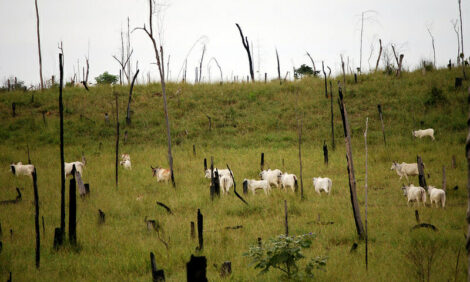



U.S. Packers Mull Attempts To Re-Enter South Korean Beef Market
US - U.S. companies are seriously considering trying again to sell beef to South Korea - a country that has rejected every shipment since September 2006 - now that it has relaxed a particularly stringent regulation that scared off U.S. exporters for months, U.S. industry and government officials said this week.last year, South Korea rejected three entire shipments of U.S. beef because inspectors said they found small pieces bone or cartilage in a few boxes.
The Bush administration is hoping South Korea will eventually agree to substantial changes in the way it accepts U.S. beef, but at least one U.S. company - Creekstone Farms Premium Beef LLC - has already decided it doesn't want to wait that long.
Kevin Pentz, a Creekstone vice president, said a relatively small change in South Korean policy to allow the country's inspectors to reject a single box of beef rather than an entire shipment if a problem is found would be sufficient for the company to export again.
"In our minds...it would be enough," Pentz told Dow Jones Newswires. Yang Ho Lee, the agriculture counselor at South Korea's embassy in the U.S., said Wednesday that the country has indeed made that change in policy.
"The Korean government changed the requirement on the eighth of March," he said, and specified that would mean boxes with no problems, such as errant bone fragments, would "pass quality requirements...and go to the market."
In three cases last year, South Korea rejected three entire shipments of U.S. beef because inspectors said they found small pieces bone or cartilage in a few boxes. Those were the only attempts to export to South Korea after the country eased its ban on U.S. beef in September last year to allow in only boneless cuts. South Korea initiated its ban on U.S. beef in December 2003 after the first case of bovine spongiform encephalopathy, or mad-cow disease, was found here.
U.S. Department of Agriculture spokeswoman Terri Teuber confirmed that South Korea has indeed made the change to its import rules to "reject only boxes in which bone chips are detected and allow the remainder of the shipment to be imported," but she stressed the U.S. believes the country needs to do more.
Source: Agriculture Online


